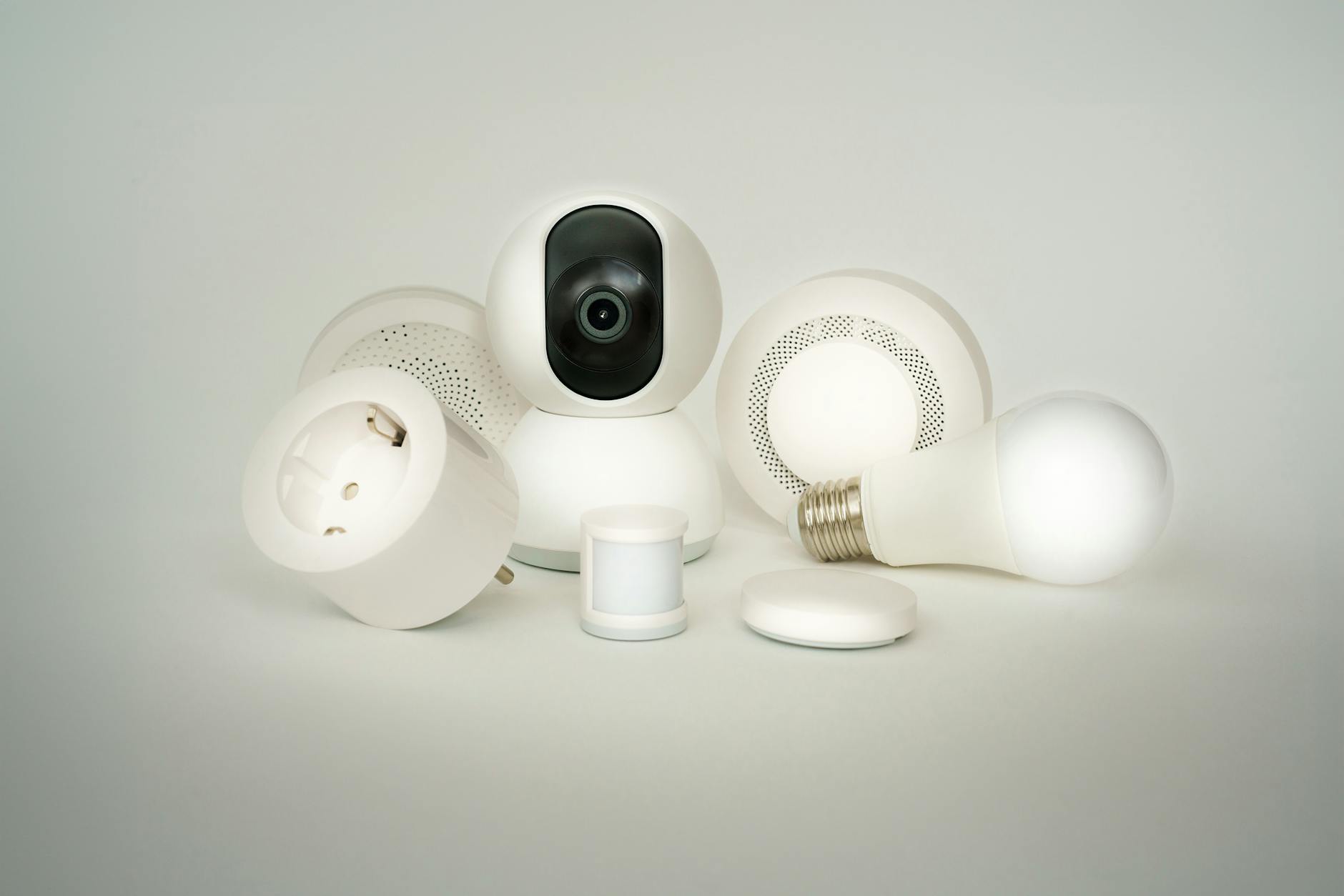
Image courtesy of Jakub Zerdzicki via <a target="_blank" rel="noopener noreferrer" href="https://www.pexels.com/photo/smart-home-devices-collection-on-white-background-29091470/">Pexels</a>
Unleash the power of robotics in revolutionizing industries worldwide. Discover how automation is changing the game in this eye-opening post.
Table of Contents
A New Era of Automation
From assembly lines in manufacturing plants to assisting patients in healthcare, robots are transforming how work is done across various industries. The adoption of robotics has ushered in a new era of automation, streamlining processes and improving efficiency.
The Role of Robotics in Manufacturing
In the manufacturing sector, robots have become essential tools for handling repetitive tasks with precision and speed. These machines can work around the clock, ensuring consistent output and reducing the risk of errors. With advancements in technology, robots are increasingly being used for complex tasks that require high levels of customization.
Revolutionizing Healthcare with Robotics
Robotics is also making significant strides in the healthcare industry, from surgical robots assisting in delicate procedures to companion robots providing support to patients. By incorporating robotics into healthcare practices, medical professionals can improve accuracy, reduce recovery times, and enhance patient care.
Enhancing Efficiency in Logistics and Warehousing
In logistics and warehousing, the utilization of robots is revolutionizing how goods are stored, picked, and transported. Automated guided vehicles (AGVs) and robotic arms are increasingly common in warehouses, speeding up fulfillment processes and optimizing inventory management.
| Industry | Impact of Robotics |
|---|---|
| Manufacturing | Increased efficiency, precision, and speed in production processes. Automation of repetitive tasks. |
| Healthcare | Assistance in surgeries, patient care, and medication dispensing. Improved accuracy and reduced human error. |
| Transportation | Development of autonomous vehicles for safer and more efficient transportation. Optimization of routes and logistics. |
| Agriculture | Automation of planting, harvesting, and monitoring processes. Precision farming for increased crop yield. |
| Retail | Implementation of robots in warehouses for faster order fulfillment. Enhanced customer experience through personalized services. |
The Impact of Robotics on Jobs
While the integration of robots into the workforce has led to concerns about job displacement, it’s important to recognize that robotics also creates new opportunities for skill development and job creation. By working alongside robots, humans can focus on tasks that require creativity, critical thinking, and emotional intelligence.
Industry 4.0: The Future of Robotics
As we move towards Industry 4.0, the next phase of industrial revolution characterized by the convergence of digital technologies, robotics will play a key role in shaping the future of work. By harnessing the power of robotics, businesses can stay competitive, adapt to shifting market demands, and drive innovation.
FAQs
Are robots completely replacing human workers in industries?
While robots are automating certain tasks, they also create new job opportunities that require human skills like creativity and problem-solving.
How are robots enhancing efficiency in logistics and warehousing?
Robots like AGVs and robotic arms are streamlining processes in warehouses, speeding up fulfillment and optimizing inventory management.
What impact do robotics have on healthcare practices?
Robotics in healthcare improve accuracy in surgeries, reduce recovery times, and enhance patient care through advanced technologies.
What is Industry 4.0, and how does robotics play a role in it?
Industry 4.0 is the next phase of industrial revolution driven by digital technologies. Robotics will be crucial in shaping the future of work, helping businesses stay competitive and innovative.




